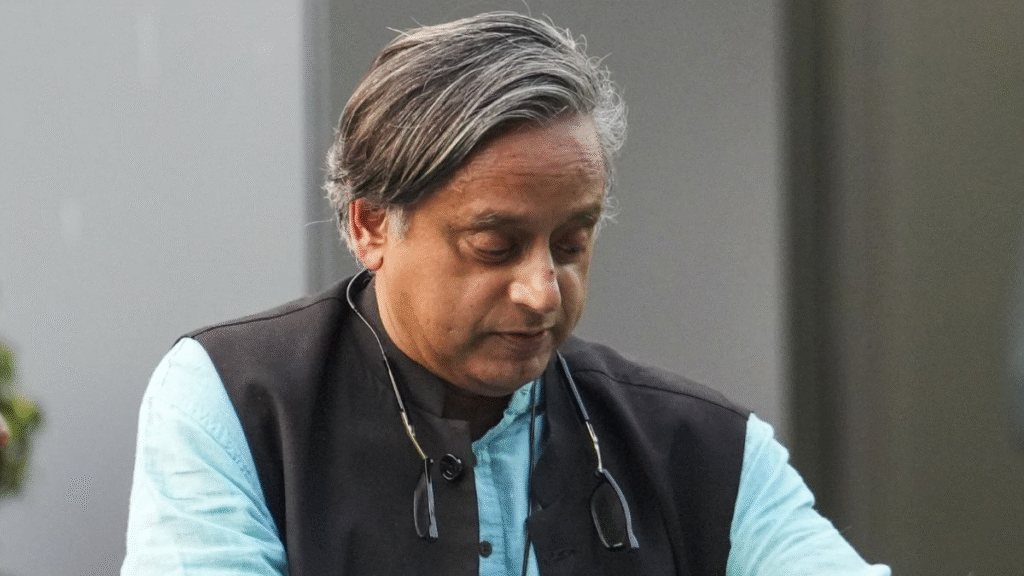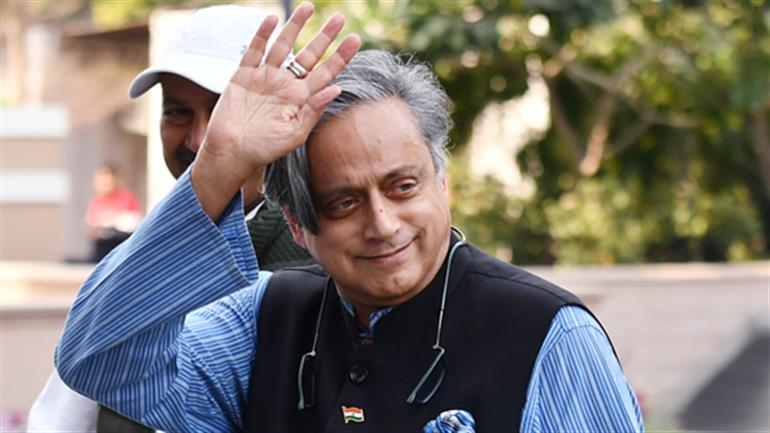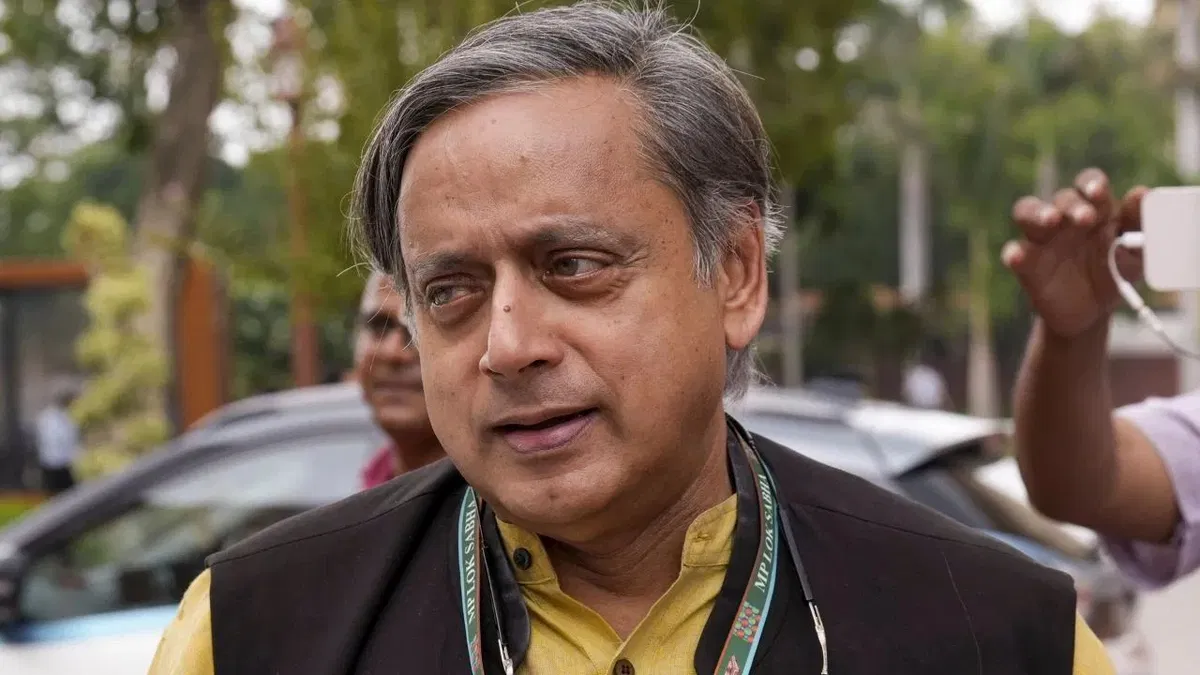
In a stirring address from Panama, renowned Indian politician and diplomat Shashi Tharoor brought global attention to the significance of Operation Sindoor — a recent humanitarian mission launched by India amidst a turbulent international scenario. This mission, which unfolded in the shadow of escalating geopolitical tensions, was more than a strategic maneuver; it was a profound act of compassion aimed at saving lives and alleviating suffering. Tharoor’s speech not only contextualized the operation’s necessity but also underscored India’s commitment to its citizens and global humanitarian principles.
The Birth of Operation Sindoor: Answering a Cry for Help
Operation Sindoor emerged as a direct response to an alarming situation where hundreds of Indian nationals found themselves trapped in conflict zones and crisis-ridden regions. These individuals faced grave threats, including violence, lack of food and medical care, and extreme uncertainty. The Indian government, aware of its duty to protect its diaspora and vulnerable communities, initiated this swift and complex mission to evacuate and provide aid.
Tharoor detailed how the operation began not with a strategic blueprint but with the urgent voices of those in distress. “We heard cries for help, stories of desperation that pierced through diplomatic silence,” he said. These cries came not only from Indian citizens but also from foreign nationals who found hope in India’s timely intervention. It was this raw, human element that transformed the operation from a mere government initiative into a mission of empathy.
The term “Sindoor,” symbolic of a traditional mark of auspiciousness and protection in Indian culture, was deliberately chosen to represent hope, safety, and renewal amid chaos. Through Operation Sindoor, India sought to reaffirm its role as a guardian of its people, wherever they might be.
Human Stories at the Core: Lives Behind the Headlines
Tharoor emphasized that behind every news report on the operation were real families enduring unimaginable hardships. He recounted the tale of a mother who had been separated from her children during an evacuation attempt, only to be reunited through the coordinated efforts of the Indian consulate and rescue teams. Another story highlighted the resilience of a group of elderly evacuees who braved harsh conditions, trusting the mission to bring them home.
These narratives served to humanize the crisis. Far beyond abstract numbers, Operation Sindoor was about restoring hope, dignity, and security to those caught in perilous situations. Tharoor’s vivid storytelling resonated deeply with audiences worldwide, reminding them that humanitarian efforts are fundamentally about people.
In his address, he also acknowledged the mental and emotional trauma faced by evacuees. “Physical safety is only the first step,” he remarked. “The scars of conflict linger long after evacuation, and addressing those is a moral imperative.” This holistic view highlighted India’s commitment not just to rescue but to rehabilitation and healing.
Diplomatic Tightrope: Navigating Geopolitical Complexities
Operation Sindoor was not without its formidable challenges. Tharoor shed light on the intricate diplomatic negotiations and sensitive geopolitical considerations that shaped the mission’s execution. The operation unfolded in regions marked by tense international relations, requiring India to balance assertive action with careful diplomacy.
Securing safe corridors for evacuation involved engaging with multiple governments, often with conflicting interests. Tharoor praised the diplomatic corps for their tireless negotiations, which ensured safe passage while maintaining regional stability. “This operation demanded not just logistical prowess but also immense diplomatic sensitivity,” he said.
India’s ability to collaborate with host nations and neighboring countries showcased the growing maturity of its foreign policy. Operation Sindoor became a demonstration of India’s strategic diplomacy, where humanitarian concerns aligned with national interests to produce a successful outcome.
Logistics of Compassion: The Operational Challenges
The practical execution of Operation Sindoor was a logistical feat. From arranging emergency flights and securing medical supplies to establishing communication networks in hostile environments, the challenges were immense.
Tharoor highlighted the role of the Indian Armed Forces, diplomatic missions, and humanitarian organizations in orchestrating the operation. Their coordinated efforts enabled timely evacuations despite volatile conditions and unpredictable security threats.
He also acknowledged the tireless frontline workers who braved dangerous environments to reach stranded citizens. Many operated in austere conditions, navigating difficult terrain and limited resources. The risks they took underscored the operation’s gravity and India’s unwavering commitment.
Celebrating Success Amid Adversity
Despite daunting obstacles, Operation Sindoor achieved remarkable successes. Tharoor shared the uplifting stories of evacuees safely reunited with their families, hospitals providing critical care, and relief camps offering shelter and support.
These triumphs were not only tactical victories but symbols of hope. They demonstrated how coordinated humanitarian action can overcome adversity and reaffirm faith in collective responsibility.

Tharoor’s recounting of these moments served to inspire pride and empathy, reinforcing the idea that even in the darkest times, humanity’s best qualities can shine.
Media’s Role: Narratives that Heal and Harm
A significant portion of Tharoor’s address was dedicated to discussing the media’s influence on public perception of Operation Sindoor. He praised journalists who responsibly reported on the mission, focusing on human stories and accurate information that mobilized support.
At the same time, he cautioned against sensationalism and misinformation, which could undermine trust and hamper rescue efforts. Tharoor stressed the ethical duty of the media to portray crises with nuance and respect for those affected.
His call for balanced, compassionate reporting resonated with many media professionals, highlighting how storytelling in times of crisis carries immense power and responsibility.
Lessons Learned and the Road Ahead
Reflecting on Operation Sindoor’s broader implications, Tharoor underscored the need for continued preparedness and strategic investment in humanitarian capabilities. He advocated for enhanced training, better coordination among government agencies, and stronger international partnerships.
The operation also illuminated the importance of integrating mental health services into disaster response, recognizing the long-term impact of trauma.
Tharoor framed Operation Sindoor as a turning point for India’s global engagement — a demonstration of its readiness to act swiftly and compassionately on the world stage.
Global Solidarity: Reception and Impact in Panama
At the international forum in Panama where Tharoor spoke, his address received widespread acclaim. Delegates from various countries lauded India’s proactive and humane approach to crisis management.
Many recognized Operation Sindoor as a benchmark for balancing national interest with global responsibility. The mission’s success enhanced India’s standing as a key player in humanitarian diplomacy.
Tharoor welcomed this recognition but reminded the global community that such missions require ongoing commitment and cooperation.
Personal Reflections: The Emotional Heart of Diplomacy
In a poignant conclusion, Tharoor shared personal reflections on the emotional impact of representing India during Operation Sindoor. He spoke of the privilege and burden of witnessing suffering firsthand and the resilience he encountered.
His reflections humanized the political narrative, emphasizing that diplomacy and humanitarian work are deeply personal endeavors driven by empathy and courage.
Conclusion: Operation Sindoor as a Beacon of Hope
Operation Sindoor, as narrated by Shashi Tharoor, transcends its operational success to become a symbol of hope, humanity, and global solidarity. It highlights India’s evolving role as a compassionate global actor capable of swift and decisive humanitarian intervention.
Tharoor’s detailed and heartfelt explanation offers clarity on why this mission was necessary and how it reaffirms India’s commitment to protecting its people and upholding universal values of dignity and care.
As geopolitical tensions continue to challenge nations worldwide, Operation Sindoor stands as a testament to what can be achieved when courage, cooperation, and compassion guide action.

